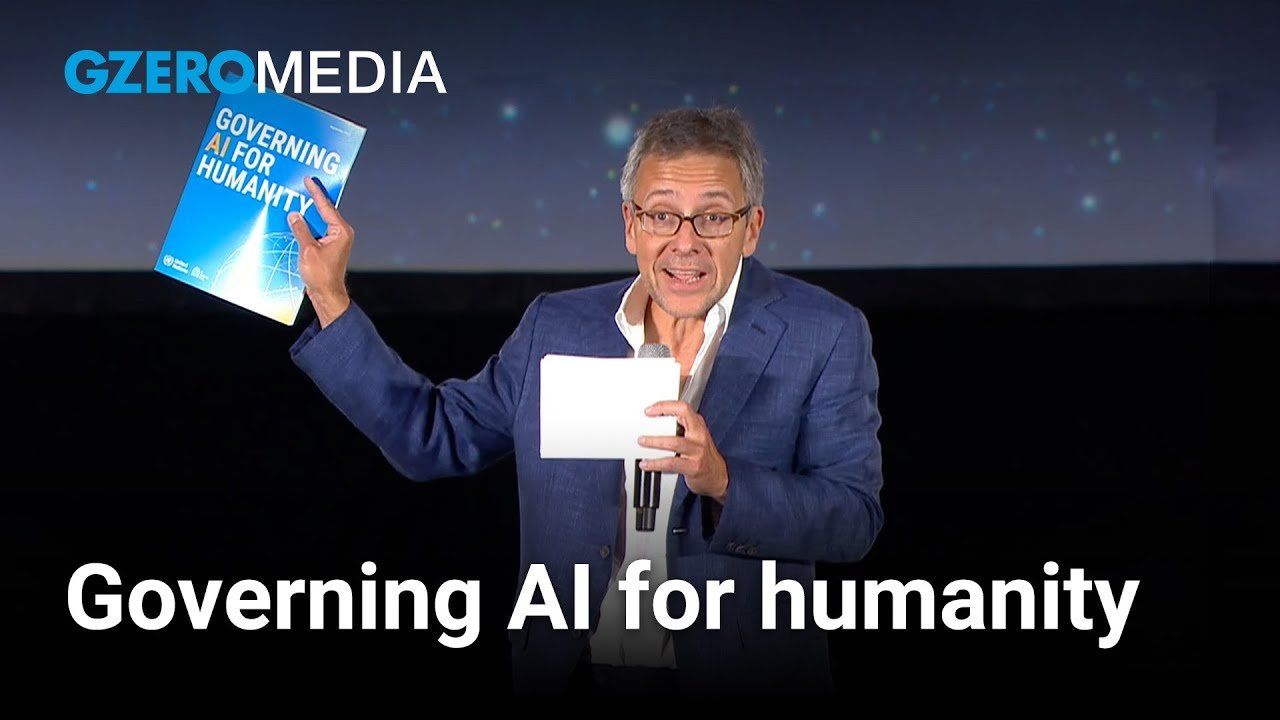September 26, 2024
Artificial intelligence is rapidly transforming global industries and societies, and the United Nations has taken a bold step to address its governance. During its 79th General Assembly, the UN adopted a pact they are calling “Summit of the Future.” Ian Bremmer, a member of the UN's high-level advisory panel on AI, highlighted the UN's efforts to create a global framework for AI governance.
The newly released report, Governing AI for Humanity, represents the first truly global approach to addressing the governance challenges posed by AI. Carme Artigas, co-chair of the panel, reinforced why the UN is uniquely positioned to lead this effort. As AI transcends borders and industries, no single nation can manage its potential harms, such as bias, discrimination, and lack of inclusivity, alone. By bringing together nations, particularly those from the global south, the UN aims to foster collaboration, encourage responsible AI development, and ensure that human rights remain at the forefront of innovation.
As AI continues to evolve, global governance of this transformative technology will become increasingly important in ensuring equity and minimizing risks.
From Your Site Articles
- Why António Guterres believes the UN should lead on AI: Exclusive interview ›
- UN Secretary-General António Guterres on AI, Security Council reform, and global conflicts ›
- AI regulation means adapting old laws for new tech: Marietje Schaake ›
- Breaking: The UN unveils plan for AI ›
- The challenges of peacekeeping amid rising global conflicts - GZERO Media ›
- Join Global Stage live from the 80th UN General Assembly - GZERO Media ›
- The UN at 80: Can multilateralism survive AI, war, and fragmentation? - GZERO Media ›
More For You
- YouTube
In this Quick Take, Ian Bremmer breaks down the growing tensions between the US and Iran, calling it "the next area of potential large-scale conflict where President Trump is interested in changing the facts on the ground."
Most Popular
A flood victim stands at her flooded home after weeks of heavy rainfall in Boane District, Maputo, Mozambique, January 19, 2026.
REUTERS/Amilton Neves/File Photo
392,000: The estimated number of people displaced across Mozambique by recent rain-induced floods. Severe flooding in the southern African nation, as well as in South Africa and Zimbabwe, has killed over 100 people.
© 2025 GZERO Media. All Rights Reserved | A Eurasia Group media company.
